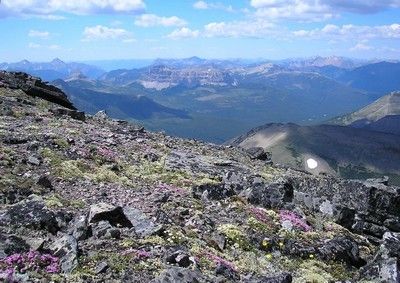The government of Alberta will outline its plans for the Castle wilderness area and south eastern slope, including its approach to off-highway vehicle use and trail planning, at a series of information sessions later this month.

In January, the province announced it would expand the Castle area parks and phase out off-highway vehicles in certain areas.
READ MORE: Alberta to expand Castle area parks, phase out off-highway vehicles
The ecologically sensitive Castle area, which includes Castle Provincial Park and the Castle Wildlands Provincial Park, preserves 103,000 hectares of land south west of Calgary.
“We’ve heard from many Albertans who camp, fish, hunt and hike with their families in southwest Alberta,” Environment Minister Shannon Phillips said in a Wednesday media release.
“They want the Castle parks protected for future generations, but they also want clarity about what takes place in surrounding areas.”
READ MORE: Battle of Castle Wilderness area: OHV supporters vs. protesters
The announcement from the province comes as the Alberta Off-Highway Association (AOHA) unveils a plan it believes could protect the environment, while still allowing off-road vehicles in the area.
The AOHA said Wednesday its plan includes close cooperation with law enforcement and the government to manage, design and repair trails in a way that is sustainable and divert OHV registration fees for habitat protection and trail construction.
The AOHA also suggests off-highway clubs be responsible for the upkeep of designated trails.
“Your designated trails become the responsibility of the club and the users, and they’re looked after on a daily basis,” explained Brent Hodgson, president of the Alberta Off-Highway Association. “And that’s not what we have now.”
Katie Morrison, conservation director for the southern Alberta Chapter of the Canadian Parks and Wilderness Society, said the lack of planning from previous governments has led to “significant” damage in areas like the Castle.
“While designated trails are absolutely needed… there are some areas that are just too sensitive to support this land use at all,” she said.
“Places like the Castle are just too sensitive and too special and too important for things like our water, for the downstream communities, to allow this use in that region.”
READ MORE: Doubts raised about plan to protect Alberta wilderness area
For his part, Hodgson said any solution for the Castle area should include all Albertans, no matter how they interact with the environment.
“All Albertans care about the landscape and love the landscape, no matter what you do. It’s just how you get there,” he said.
Morrison said her group has been working with the government to determine which areas in the province could support off-highway vehicles, if they are operated responsibility.
READ MORE: Off-highway vehicle enthusiasts fight proposed ban in new Alberta parks
The first information session will be held March 10, with public consultation on the Castle parks draft management plan being extended until April 19.
The government said Wednesday it is investing $20 million towards improving tourism and fostering more responsible use of the ecologically sensitive Castle area.
Here is a closer look at the considerations being put forward by the government as it drafts its plan for the region:
· Alberta hunters will be allowed to recover game through limited use of trail networks during hunting season.
· Alberta ranchers will see grazing permits managed by range lands staff. The province will continue to work with permit holders on a formalized agreement.
· Alberta anglers will see Alberta’s fish populations protected through fish recovery strategies, including the threatened Bull Trout and Westslope Cutthroat Trout.
· Albertans with mobility issues, including the elderly, will be given special consideration to ensure park access is inclusive.
· No changes to the current state-of-trail access will be made in the upcoming year for off-highway vehicles use. The focus will be on closing illegal trails and creating proper signage.
· There will be increased enforcement to prevent irresponsible activities in the Castle parks.
· The revised plan will include maintaining northern access and routes into the park from the Crowsnest Pass.








Comments